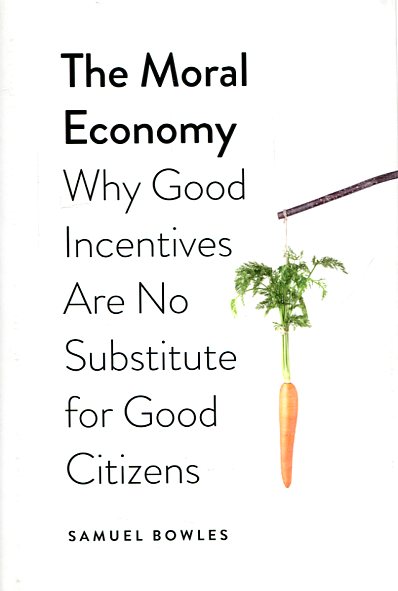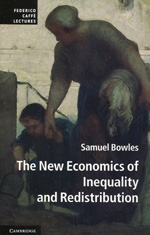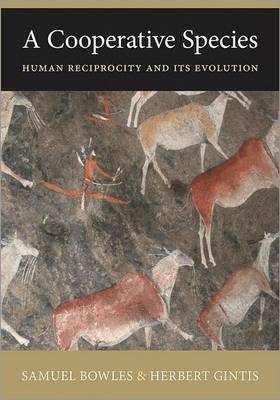The moral economy
why good incentives are no substitute for good citizens
- ISBN: 9780300163803
- Editorial: Yale University Press
- Fecha de la edición: 2016
- Lugar de la edición: New Haven. Estados Unidos de Norteamérica
- Encuadernación: Cartoné
- Medidas: 22 cm
- Nº Pág.: 267
- Idiomas: Inglés

Servicio de búsqueda de libros
Este libro está agotado o descatalogado por la editorial. Si lo desea podemos buscar esta obra en librerías de saldo y ocasión.
Sí, por favor búsquenme este libroWhy do policies and business practices that ignore the moral and generous side of human nature often fail? Should the idea of economic man-the amoral and self-interested Homo economicus-determine how we expect people to respond to monetary rewards, punishments, and other incentives? Samuel Bowles answers with a resounding "no." Policies that follow from this paradigm, he shows, may "crowd out" ethical and generous motives and thus backfire. But incentives per se are not really the culprit. Bowles shows that crowding out occurs when the message conveyed by fines and rewards is that self-interest is expected, that the employer thinks the workforce is lazy, or that the citizen cannot otherwise be trusted to contribute to the public good. Using historical and recent case studies as well as behavioral experiments, Bowles shows how well-designed incentives can crowd in the civic motives on which good governance depends.









